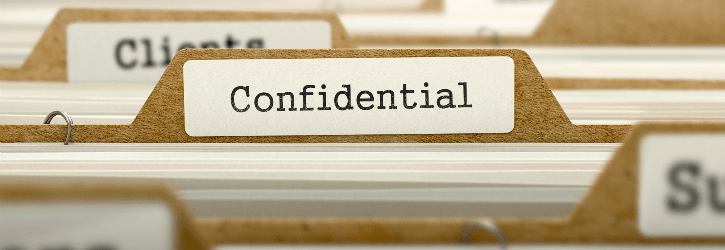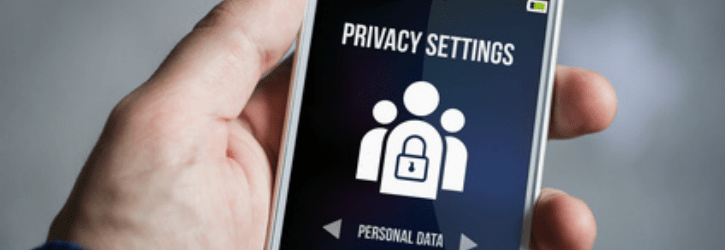
Welcome To The Data Leak Lawyers Blog
We focus on the latest news surrounding data breaches, leaks and hacks plus daily internet security articles.

We focus on the latest news surrounding data breaches, leaks and hacks plus daily internet security articles.

If you’ve been the victim of unauthorised access to your patient records, it’s important to know that you may be eligible to make a claim for medical data breach compensation.
We’ve discussed these kinds of NHS data breach claims many times before as it’s a common scenario for legal cases that we take forward. Issues like this have also been prevalent in the media following the Information Commissioner’s office (ICO) having to prosecute several employees guilty of breaking the law. They even had to issue a general warning to staff as a reminder to not abuse their rights to access medical data.
This issue is back in the media again following the huge Greater Manchester patients medical records access scandal, which is something we’ve taking a number of cases forward for.

We deal with a lot of cases that involve NHS medical records exposed in various ways, but this has to be the one of the most worrying and bizarre stories we’ve ever seen.
It’s understood that 40 tightly-packed bales of partially-shredded and cut NHS medical records have been used to weigh down a sculpture in Milton Keynes town centre. It’s set to be unveiled this Thursday as part of the annual Festival of Urban Living, but it’s reported that bits of the papers used in the bales have been caught by the wind and have been blown around the area.
Some of the papers are said to have included visible personal details of medical records, including prescriptions and surgery information. This really is a serious, serious matter indeed.

We’ve taken cases forward for Greater Manchester NHS patients whose medical records have been improperly accessed following an investigation by Wrightington, Wigan and Leigh NHS Foundation Trust.
We were contacted by patients who had been affected by the data breaches prior to news of the scandal hitting the headlines. We’ve agreed to act for victims affected by the data breaches who match our criteria on a No Win, No Fee basis.
Depending on what information has been improperly accessed, and how this has affected you, we may be able to take a legal case forward on your behalf.

We’ve been contacted for help and taken a new case forward involving a Wrightington, Wigan and Leigh NHS Foundation Trust data breach for unauthorised medical records access.
If you have been informed that your medical records have been accessed without good reason, you may have a claim for NHS data breach compensation. These kinds of cases can be quite common, and the Information Commissioner’s Office (ICO) has had to warn medical staff about making sure to not break the law.
Given we are seeing another incident where this appears to have happened, we expect that an ICO fine may be forthcoming. For those who have been contacted and told that their personal and sensitive data has been misused, we may be able to help you.

We’re representing victims who are claiming compensation as a result of the Charing Cross GIC leak, and we know there are questions and concerns from those whose data has been exposed.
We’re used to advising people when these kinds of things happen. We’re fighting for justice in dozens of data breach compensation action, and this includes the similar 56 Dean Street Clinic leak.
Unfortunately, we can’t turn back the clock; but you don’t have to suffer in silence either. Here’s how we can help you.

We have commenced work for a compensation action in light of the Charing Cross Clinic data leak that was announced last Friday.
We were approached immediately for advice and legal representation, and we have agreed to act for any victim who comes forward for our help on a No Win, No Fee basis.
This email leak was entirely avoidable, and is a tragic repeat of previous data leaks that were just as preventable. We have recovered tens of thousands of pounds in damages for victims of the similar 56 Dean Street Clinic email leak where many claims remain ongoing. That was also another case of an email sent to hundreds of people where the recipient list was visible to all other recipients.

The volume of Countess of Chester Hospital data breaches has raised some concerns after figures revealed there have been hundreds of incidents in the 2018/19 period.
We say this a lot, but the volume of individual cases that we take forward that involve medical data cases is high. Although the statistics aren’t surprising, given the number of NHS data breach compensation claims we take forward, it’s still worrying; especially when you consider the nature of the information at risk here.
The news about the data revealed by the Chester Standard reported that, on average, there has been more than four every week during the period reviewed.

As expert Data Leak Lawyers who specialise and focus on data protection compensation claims, we believe that people ought to be concerned about health app data breaches.
There are many ways these breaches can occur, and when it comes to medical data, we’re talking about some of the most private and sensitive information there is.
The app market continues to grow, and the popularity of health apps is understood to be on the rise as well. Ultimately, the companies behind these apps could be gathering – and maybe even sharing – more data than many people realise. On top of that, the risks of leaks and hacks is a cause for concern.

As well as general worries about the healthcare sector on the whole, we may also need to worry about private cybersecurity firms putting the NHS at risk of data breaches as well.
This is an important topic to look at as we continue to review the growing concerns surrounding data protection in our national health service. We know the NHS is a target given the wealth of personal and sensitive data they process and store, and we know that more and more services are being outsourced private companies.
We cannot ignore the risks that private cybersecurity firms themselves may put the NHS at, and victims must know what they need to do. There’s a reason as to why data breach compensation amounts can be high when it comes to breaches of medical information, as the distress that can be caused can be significant.

There are still so many worries when it comes to another NHS cyber breach event like we saw with the 2017 WannaCry incident that crippled many parts of our healthcare service.
Last week, we covered the most recent study that was focused on ongoing vulnerabilities and whether we’re set to see another huge event that could affect millions of people in the UK. And a lot of the worries stem from the simple fact that there’s not always enough funding in place for proper cybersecurity. In fact, cost-cutting can subsequently lead to even greater vulnerabilities.
We can’t change the fact that vulnerabilities may not be the focus for the government. But what we can do is make sure that victims of an NHS cyber breach can access the legal help and representation they need.
EasyJet admits data of nine million hacked
British Airways data breach: How to claim up to £6,000 compensation
Are you owed £5,000 for the Virgin Media data breach?
Virgin Media faces £4.5 BILLION in compensation payouts
BA customers given final deadline to claim compensation for data breach
Shoppers slam Morrisons after loyalty points stolen
Half a million customers can sue BA over huge data breach
Lawyers accuse BA of 'swerving responsibility' for data breach
The biggest data breaches of 2020
Fill out our quick call back form below and we'll contact you when you're ready to talk to us.